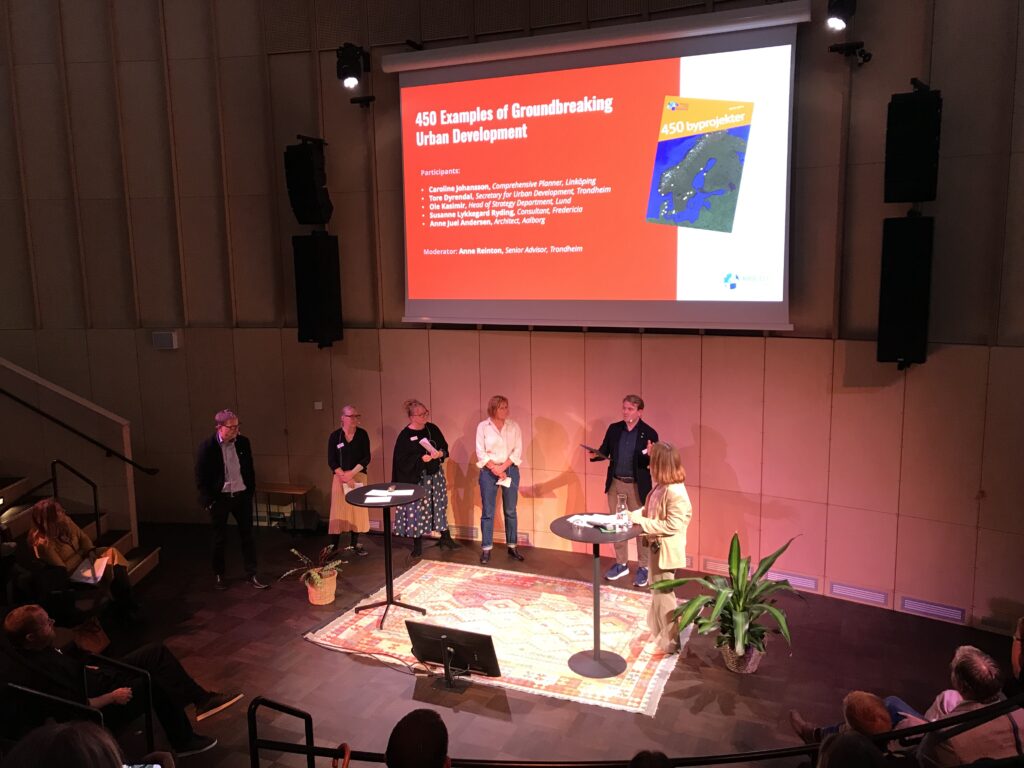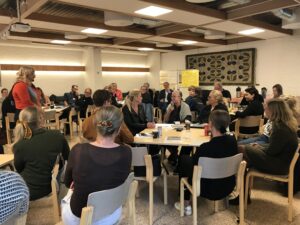
Conclusion 2024: Part 3 – New Nordic Urban Development
New Nordic Urban Development – start-up in 2024 and plans for 2025
In 2025, Nordic City Network will celebrate its 20th anniversary! We will mark this occasion by taking the pulse of contemporary Nordic urban development. By collecting material from our member cities, we aim at exploring how the conditions and norms for developing our cities have changed over time, as well as what knowledge, approaches, and tools we need to develop cities better adapted to future needs.
We warmly invite both new and old members, friends, and acquaintances to contribute with their perspectives to this work. During the year we will invite these external actors to the discussion on challenges and opportunities in contemporary Nordic urban development.
Are you not a member of the network but eager to follow the process? Contact the secretariat: secretariat@nordiccitynetwork.com
Background
Between 2013 and 2014, Nordic City Network compiled a collection of “groundbreaking” urban development projects in the Nordic region. Each member city was asked to submit the 25 projects they deemed had the greatest impact on the municipality’s development. In total, there were 450 examples. Most were not groundbreaking, but together, the projects provided a very exciting description of where Nordic urban development stood at that time, in 2014. The 450 examples describe, among other things, the transformation of Nordic cities from industrial to knowledge cities.
The following year (2015), an analysis of the 450 examples was conducted, where the network asked whether there is a specific Nordic village model and, if so, what its distinctive features are. The analysis resulted in 8 theses on the Nordic village linked to 8 themes.
8 Theses on Nordic Urban Development:
- Village competition and regionalization
- Business development and innovation
- Public spaces
- Welfare institutions
- Cultural and ethnic diversity
- Infrastructure
- The citizen
- Nature in the village
Here you can find the publication: 450 Examples of Groundbreaking Urban Development
Here you can find the publication: Nordic Cities in Transition
New Nordic Urban Development? Our new project in 2025!
Based on the 450 examples collected in 2014, the network is now conducting a follow-up analysis to explore how the planning paradigm has changed over the past ten years and what it can tell us about the future of urban development. Have the projects had the impact we anticipated ten years ago? If we could do them over, what would we change? And how can we use this knowledge to develop our cities moving forward?
The collection of new material has already started and will continue until the end of February 2025. During the spring, we will process the incoming material through discussion and analysis in our morning meetings. The preliminary results will be presented and discussed at our anniversary lab in Linköping from October 1-3, 2025, and then packaged into a final analysis.
Follow the work at www.nordiccitynetwork.com and by subscribing to our newsletter.

Reflections from Gehl on the early start-up at the lab
We kick-started the process of analyzing contemporary Nordic urban development at the lab in Lund in September 2024. Four current and one former member were invited to analyze their selected examples in the publication 450 Examples of Groundbreaking Urban Development in the Nordics and reflect on how the planning paradigm (and not least the conditions for our planning) has changed over the past 10 years.
450 examples of urban development in 2014 inspires the collection of new examples in 2025
On the first day of the Lab in Lund, sharing of knowledge and experiences was on the agenda. The last session of the day marked the 10th anniversary of the Nordic City Network’s collaborative effort to develop the publication “450 examples of groundbreaking urban development” which aimed to map and highlight the Nordic approach to urban development. The goal was to compile exemplary projects showcasing how urban development can drive transformation and renewal, offering inspiration to other cities within the network.
During the session in Lund, Anne Reiton, Acting Municipal Director of Trondheim and Vice Chairman of the Board of Nordic City Network facilitated a discussion with representatives from five of the cities that contributed to the 2014 publication: Linköping, Trondheim, Lund, Fredericia, and Aalborg. The conversation revolved around topics that were central to urban development 10 years ago, such as growth, knowledge as a driving force in urban development, collaboration (triple helix), and the transformation of industrial cities into residential and knowledge cities.
The conversation also highlighted how new topics, agendas, and dynamics have influenced the projects over time. Many of the 450 projects have been completed but projects have also been shaped by changing conditions, shifts in economic cycles, the climate agenda, new land use priorities, etc. These changes have altered or even halted some projects from their original vision. However, the discussion emphasized that the greatest successes and positive changes in these cities are not solely due to the physical projects but are largely attributed to how collaboration has been structured around the projects and the overall development of the city.
Looking forward, several new agendas are emerging, and in the Lab conversation, several key themes were highlighted which are expected to impact future urban development:
- The Social Perspective
- Health and Well-being
- Climate and Nature informing where to build and live
- Urban Mobility and new infrastructure creating new development potentials
- Reduced need for m2 and Changing Area Priorities
- Slower City Growth giving more time to reflect
- Cohesion Across the Municipality
- The Relationship Between Housing Supply and Workforce needs
With these themes in mind, the Nordic City Network plans to create a framework for a new collection of projects from the member cities. In celebration of the anniversary year, this collection will showcase more exemplary projects from Nordic cities that others can learn from, both within and outside the network.